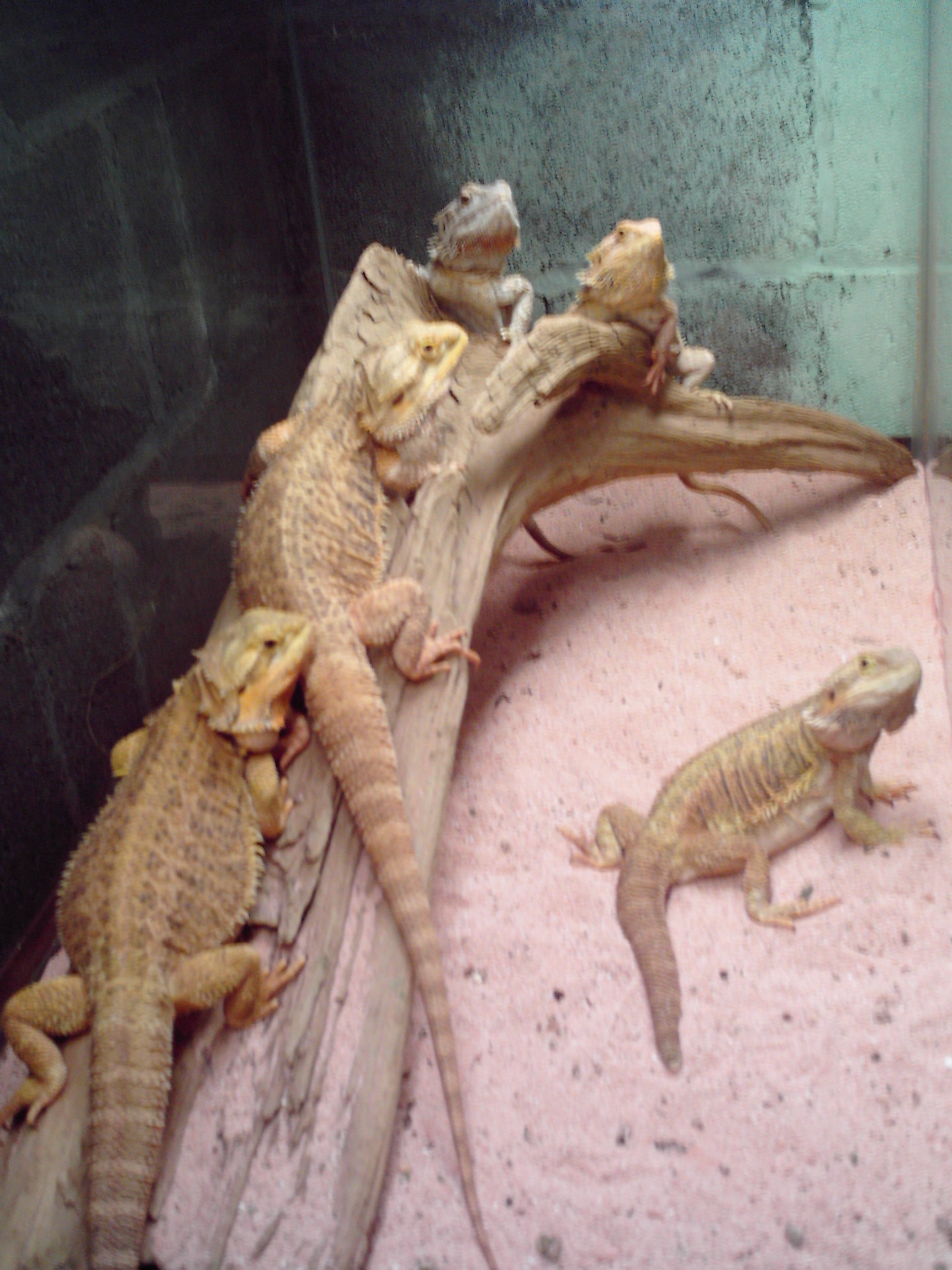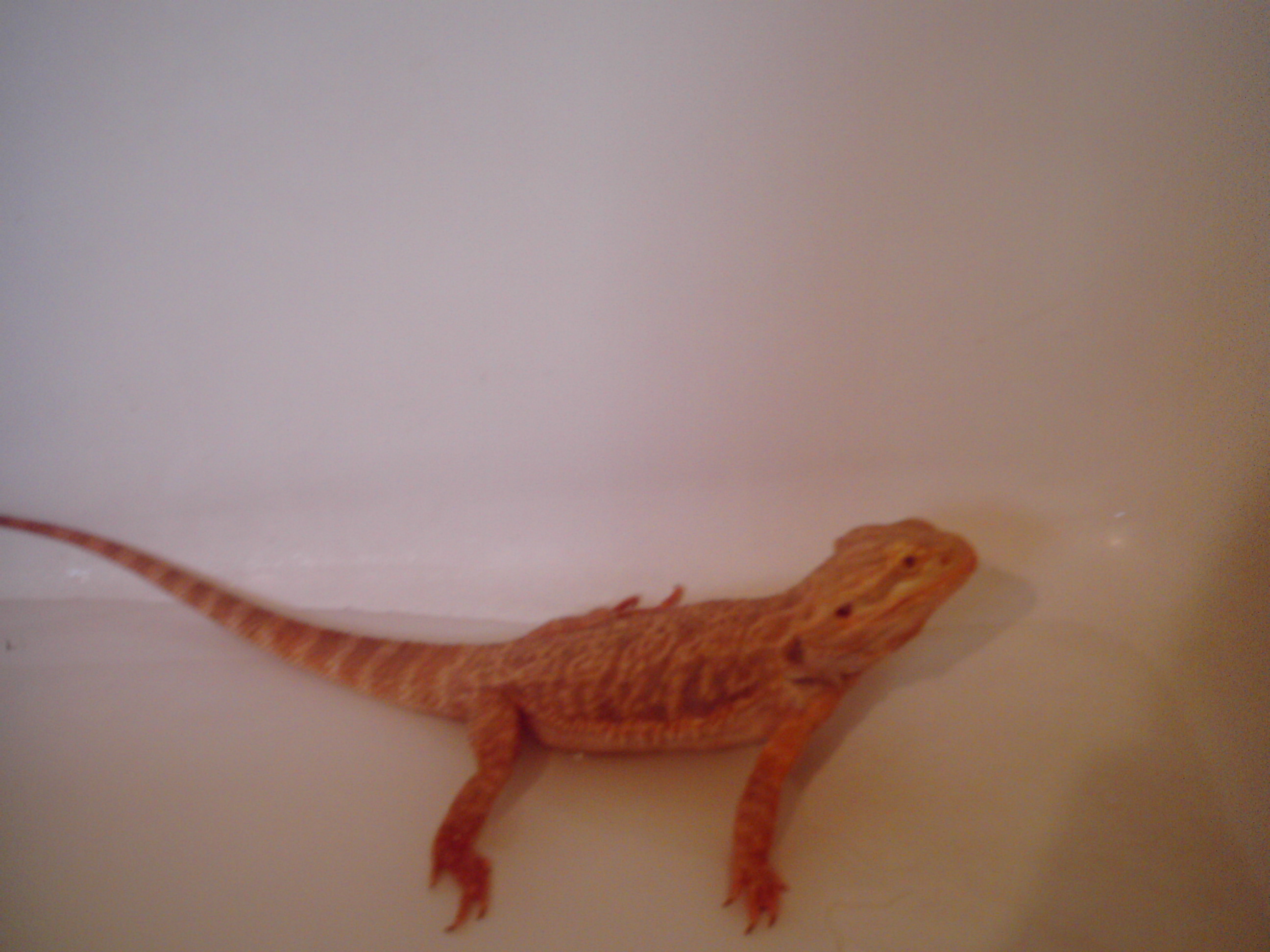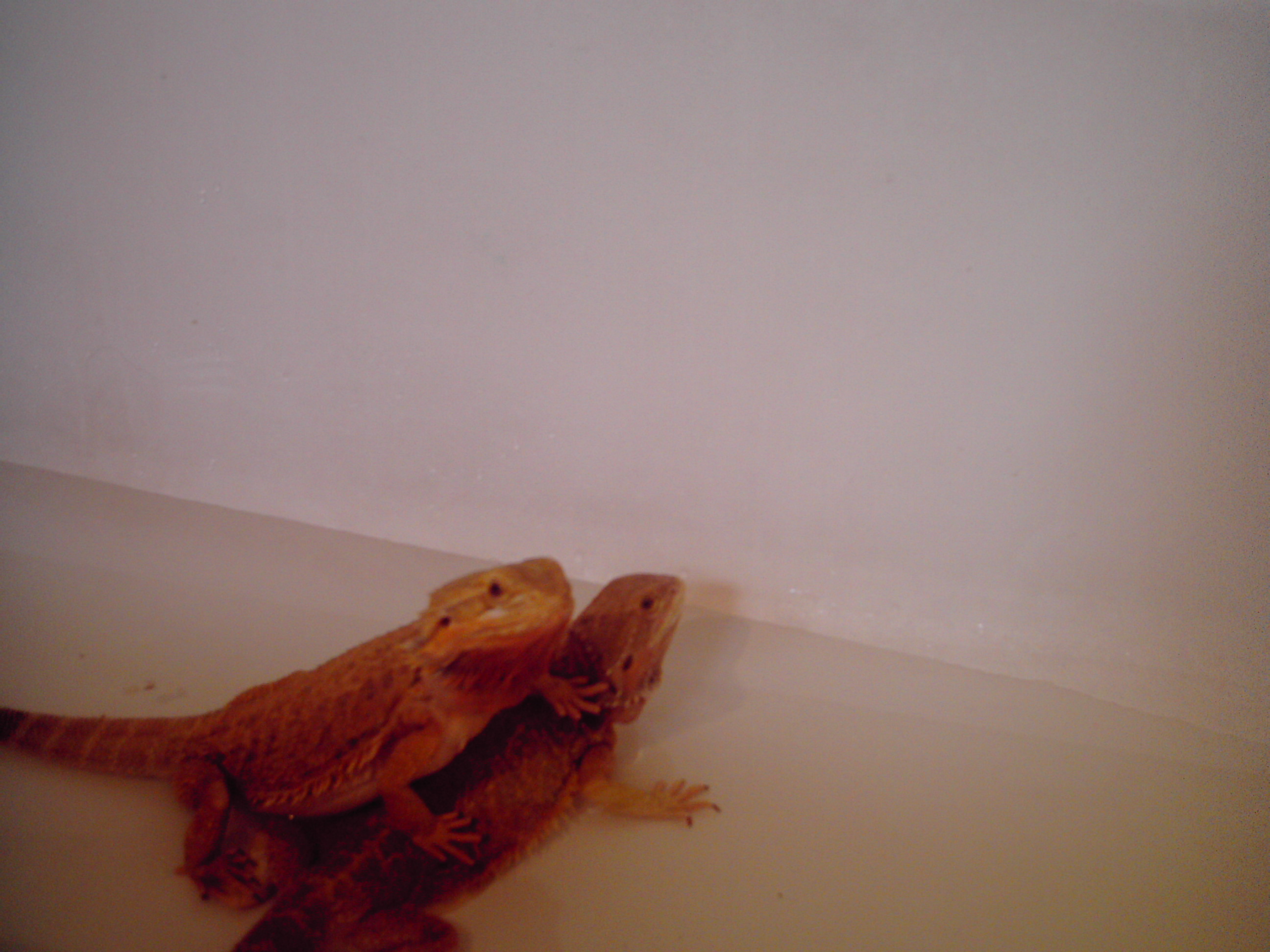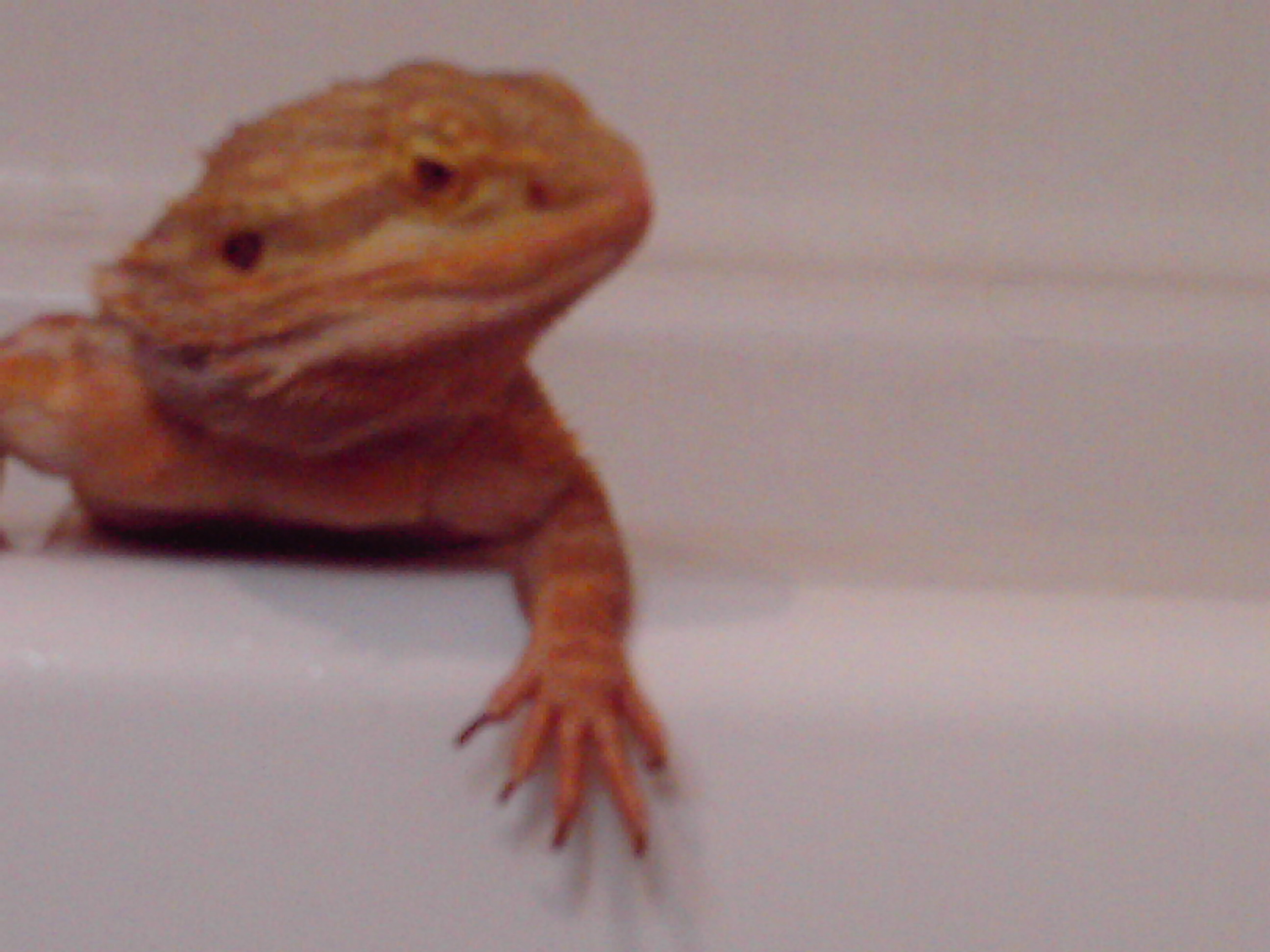Feeding -
Feeding your Bearded Dragon will require handling bugs. Yes, we said BUGS... Crickets, mealworms, wax worms, oh! And possibly pinkies. Bearded Dragons are omnivores, meaning that they will eat veggies and small animals. Insects should be a daily staple of your Dragons diet and greens should be available at all times.
Bugs
The size of the food items you feed your Dragon is extremely important. All food that is offered should be smaller in width than the Dragons mouth. Use caution in choosing the insect size, as too large of a cricket can cause health problems (ie. - blockage) while digesting. The same applies with mealworms, use small mealworms for small dragons, and increase the mealworm size as the dragons size increases. A hatchling, up to 2 months will eat mostly insects, picking at finely chopped greens here and there.
2 week old crickets (3/8 inch in size) should be offered 2 - 3 feedings a day, only in the amount that the dragon will eat at one feeding.. A juvenile Dragon (2 - 4 months) will eat approximately 20% greens to 80% insects... 3 week old crickets should be given 2 times daily and small (1/2 inch) mealworms can be added to their diet. 4 months to maturity should be fed approximately 4 week old crickets once or twice daily. The small mealies may be replaced by larger ones and king mealworms may also be added. Pinky mice can also be added to their diet once a week, depending on the size of the dragon. Adult dragons need to be fed adult crickets, king mealworms... once a day or every other day. Pinky mice, if used, should be fed sparingly - unless feeding a gravid adult.
Bearded dragons are voracious eaters, especially when they are young. If you aren't feeding the hatchlings enough, and if they have cage-mates, they will nibble toes and tail-tips - if it moves, its food. If your dragons aren't eating well, something is possibly wrong. The most likely problem is that the cage temperature is incorrect: their bodies must reach high temperatures in order to digest their food. If they are digesting slowly, they wont eat well. First step - Check Temp.
Warning: Lightning Bugs are DEADLY POISONOUS to Bearded Dragons! This highlights the dangers of feeding wild caught insects to your bearded dragons. Our rule is no wild caught insects. The insect may be safe but you never know where that bug has been. The bug may have eaten weed poison or bug poison.
Gutloading
Crickets and mealworms are readily available at most pet shops. These crickets and mealies are generally not high in nutrients directly from the pet shop and will need to be fed well (GutLoad, baby cereal, fresh fruit & veggies) before being offered to your Dragon. This is called 'gutloading'. I recommend 'gutloading' crickets for 24 hours before feeding. We use an orange, carrot and a potato for moisture, and a mixture of baby cereal and Gutload for nutrients.
Veggies
There is a huge selection of 'leafy' greens which are high in calcium to feed your Dragon, some of which are... kale, arugula, collard & mustard greens, parsley, dandelion greens and flowers, endives, radish, carrot and turnip tops, escarole and chicory endive. For more of a variety, mixed into the greens may be many other veggies such as squash, corn, peas, carrots (shredded), sweet potato, cucumber, zucchini, green peppers, chard... also chopped fruit such as cantaloupe, apple, blueberries, peaches, pears, grapes, plums, raspberries... all chopped finely to avoid choking. The main idea in their diet is variety.
WARNING
Do not feed your dragons iceburg lettuce as is has very little nutritional value and may give the dragon the 'runs' - prompting dehydration.
Dragons will also munch on other greens. If you take your dragon outside or allow it to roam about the house - please be sure to check that the possible munchies are not poisonous.



